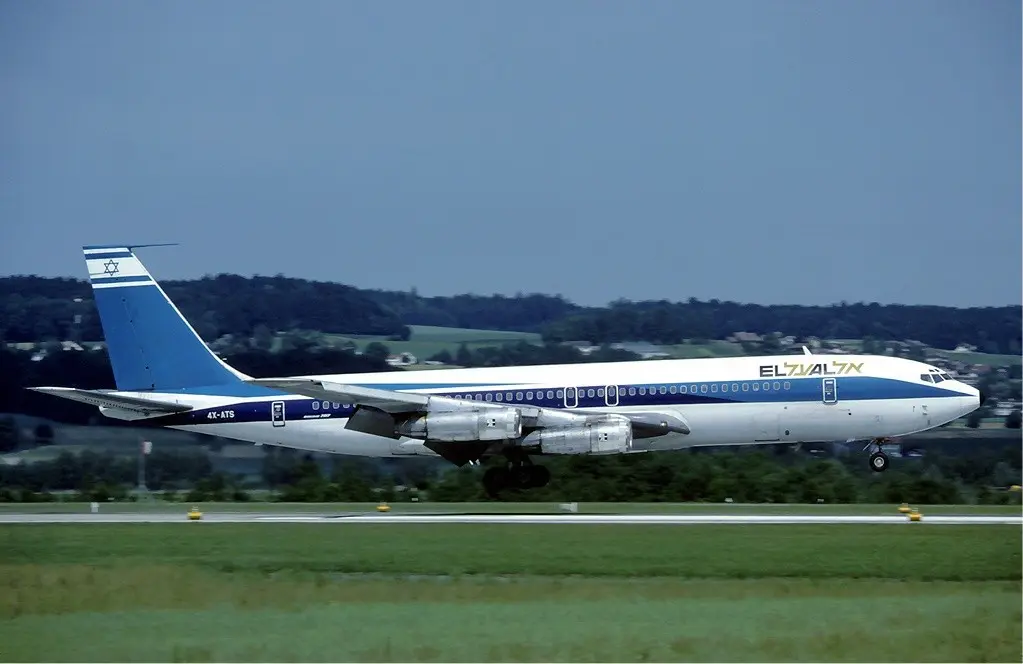
France halts visa renewals for El Al airline staff, triggering diplomatic tensions with Israel.
France Visa Freeze on El Al – In a move that has sent ripples through diplomatic and aviation circles, France has temporarily halted the renewal of work visas for security personnel employed by El Al, Israel’s national airline. The decision, which affects operations at Charles de Gaulle Airport in Paris, has raised questions about diplomatic protocol, national security, and the growing strain between France and Israel amid the ongoing Gaza conflict.
While French authorities cite procedural concerns and diplomatic friction, Israeli officials are scrambling to resolve the issue through backchannel negotiations. The visa freeze not only disrupts El Al’s operations in Europe but also symbolizes a deeper geopolitical rift that’s beginning to surface in unexpected places, like airport terminals.
The Visa Freeze: What Happened and Why It Matters
The controversy centers around El Al’s security staff, who are classified as ITAN workers, Israeli citizens supporting diplomatic missions abroad. These employees have historically received work visas through Israel’s embassy in Paris, allowing them to legally live and operate in France. However, for the past six months, no renewals have been granted, effectively rendering many of these workers undocumented and forcing some to return to Israel.
France’s Justification:
According to French diplomatic sources, the freeze stems from “systematic screening” of French diplomats by El Al’s security personnel at Charles de Gaulle Airport. These screenings, described as invasive and excessive, reportedly created friction between the two nations’ diplomatic corps.
- French officials claim the screenings violate diplomatic norms.
- The visa freeze is framed as an administrative suspension, pending resolution.
- Talks are underway between the Israeli embassy in Paris and the French Foreign Ministry to find a compromise.
While the French government has not officially linked the decision to the Gaza conflict, the timing and broader context suggest that political tensions may be influencing administrative actions.
Israel’s Response: Diplomatic Damage Control
Israel’s Foreign Ministry has acknowledged the issue and confirmed that it is being handled by the embassy in Paris in coordination with French authorities. El Al, meanwhile, has referred affected employees to the ministry for assistance, but many have struggled to obtain alternative diplomatic visas.
Key Developments:
- El Al’s Paris office was recently vandalized with graffiti reading “El Al genocide airline,” prompting the evacuation of staff.
- An air traffic controller at Charles de Gaulle allegedly shouted “Free Palestine” at El Al pilots over the intercom, further escalating tensions.
- Former U.S. Ambassador to Israel Mike Huckabee reacted publicly, posting on social media:
“Say it ain’t so, France. Say it ain’t so! What happened to France?”
These incidents reflect a growing hostility toward Israeli institutions in France, fueled by public outrage over the war in Gaza and France’s evolving stance on Palestinian statehood.
Geopolitical Undercurrents: France, Israel, and the Gaza Factor
While the visa issue may appear administrative on the surface, it’s unfolding against a backdrop of intensifying geopolitical friction. France has been increasingly vocal in its criticism of Israel’s military operations in Gaza, with President Emmanuel Macron announcing plans to recognize a Palestinian state in September.
Broader Context:
- The International Criminal Court has issued arrest warrants for Israeli leaders over alleged war crimes in Gaza.
- France has condemned Israel’s occupation of Gaza as a “disaster.”
- Public sentiment in France has shifted, with growing support for Palestinian rights and criticism of Israeli policies.
In this climate, the visa freeze may be interpreted as a symbolic rebuke—a way for France to assert its disapproval without resorting to overt diplomatic confrontation. It also reflects the increasing entanglement of civil aviation and international politics, where airlines become proxies for national agendas.
France Visa Freeze on El Al– What Next: Resolution or Escalation?
As negotiations continue behind closed doors, the future of El Al’s operations in France remains uncertain. The airline, known for its stringent security protocols, considers its staff essential for maintaining safety on international routes. Without valid visas, these employees cannot legally work in France, jeopardizing flight schedules and passenger confidence.
Possible Outcomes:
- Diplomatic Resolution: A compromise may be reached allowing El Al staff to resume work under revised protocols.
- Operational Adjustments: El Al may reroute flights or reduce service to France if the issue persists.
- Political Fallout: Continued friction could lead to broader diplomatic consequences, affecting trade, tourism, and bilateral cooperation.
For now, both nations appear committed to resolving the issue quietly. But the underlying tensions—rooted in war, diplomacy, and public sentiment—suggest that this is more than a bureaucratic hiccup. It’s a test of resilience, respect, and the limits of international cooperation.
Final Thoughts
The visa freeze on El Al’s security staff is a potent reminder that diplomacy doesn’t just happen in embassies—it happens in airports, on tarmacs, and in the quiet corridors of immigration offices. As France and Israel navigate this delicate moment, the world watches, aware that even the smallest administrative decisions can carry the weight of global politics.
In an era where every action is scrutinized, and every gesture interpreted, the question remains: can diplomacy rise above division, or will it be grounded by the very tensions it seeks to resolve?
Also read – Refugee status to Gazans? France’s Bold Asylum Shift for Gaza